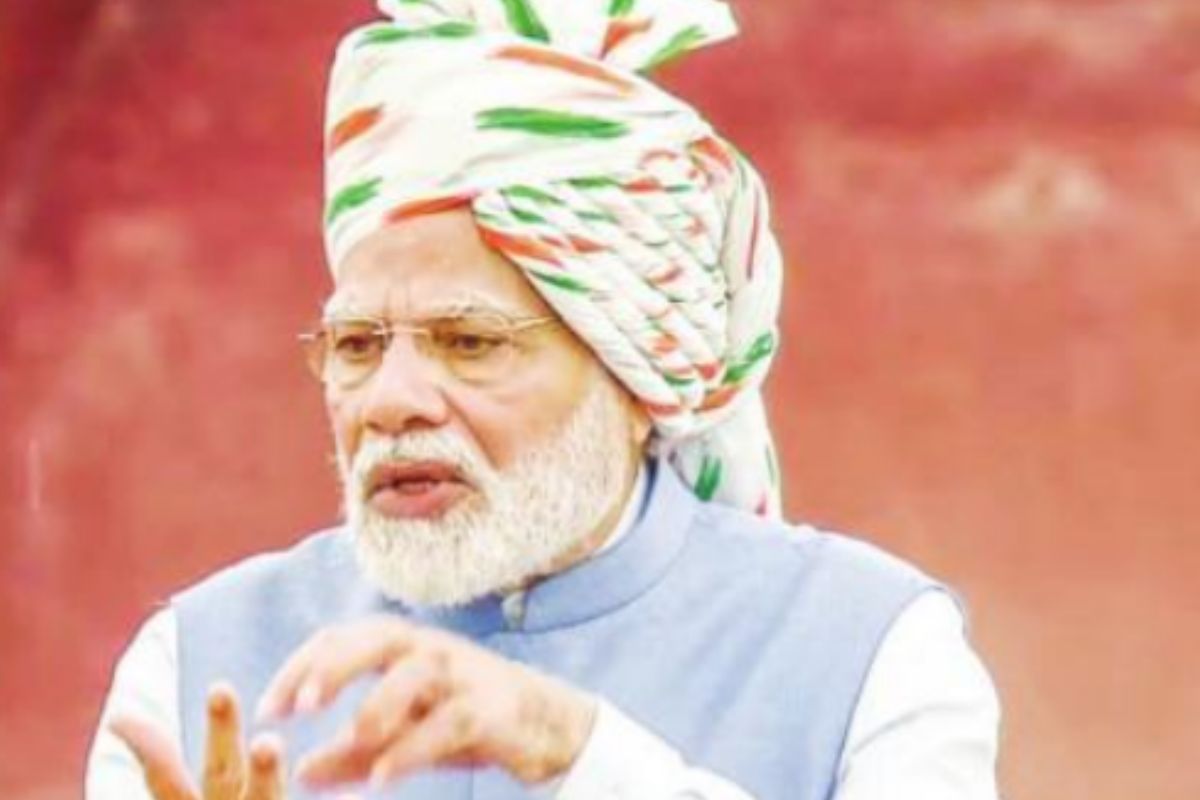Prime Minister Narendra Modi is making dynast-free politics the narrative for the 2024 Lok Sabha polls. After an extended campaign for a “Congress-mukt Bharat”, the Bhartiya Janata Party has launched a broadside against other dynastic parties. In its Hyderabad executive meeting, the party vowed to eliminate it.
The question is whether it is possible to eliminate such parties as the concept is growing. One more member of a dynasty has been elevated this week in Tamil Nadu. It is Udhayanidhi, son of chief minister M.K.Stalin, who just took over as Sports minister in his father’s Cabinet. The DMK workers hail his induction and cheer him as the future chief minister.
Advertisement
Udhay, as he is called, is a thirdgeneration politician from the M. Karunanidhi clan. He often faced flak for perpetuating dynasty politics. After much speculation about whether Stalin would elevate his son now or later, the chief minister chose to anoint Udhay as a minister on Wednesday.
Udhayanidhi began his political career by campaigning for the 2019 Lok Sabha elections. He was later appointed secretary of the DMK youth wing, a position Stalin had held, and toured around the state. It was a quick promotion for the 45-year-old film star turned politician.
In the 2021 Assembly polls, Udhay won the prestigious Chepak Tiruvallikeni seat held by his grandfather in the past. The DMK got a thumping win in the polls, helping him consolidate his position in the party. He is a first time MLA.
Before Udhay entered the rough and tumble of politics, he acted in films and tried his hand at film distribution. His Red Giant Movies is a successful name in film production and distribution.
Udhay has won support from four sections. The first is from the party. As was expected, there were no murmurs from the cadre at his quick elevation.
Secondly, Udhay seems to have had a smooth transition, as was seen from senior leaders lining up to take him to his room in the secretariat after the oath-taking.
Third is the media. Despite some eyebrows being raised, Udhay did not face a hostile press.
The fourth is that the general public showed no adverse reaction. Kalaignar perpetuated dynastic rule, though the DMK had not favoured it during the first DMK chief minister C.N. Annadurai’s time.
Will Udhay be a plus or minus for Stalin? The party and the public would scrutinize Udhay’s every move. He must utilise his advantages and avoid controversies. He could enthuse the youth. For now, he has shown maturity by deciding not to act in films.
Stalin became strong as chief minister and emerged as one of the prominent Opposition leaders. Karunanidhi groomed Stalin for a long time. But he did not make him the party chief until his death. The DMK and AIADMK have been ruling Tamil Nadu alternatively for the past six decades. Several important political events unfolded, especially after the demise of former chief ministers Jayalalithaa and Karunanidhi in 2016 and 2017, respectively. Stalin could keep his flock together while AIADMK split into four. National parties are at the forefront of the family rule phenomenon in India. Except for a handful like the communist parties, only seven or eight of the fifty relevant parties in India are not dynasties.
Doing away with dynasts would be difficult as more regional leaders emerge. These regional chieftains have a proprietorial hold over their strong vote bank. The BJP plans to either decimate them or join them as their ally.
Therefore, dealing with them would be Mr Modi’s next big project. The 137-year-old Congress is at the top of the list. Telangana, Meghalaya, Nagaland, Tripura, Karnataka, Chhattisgarh, Madhya Pradesh, Mizoram, and Rajasthan will hold Assembly elections in 2023.
From Kashmir to Kanyakumari, there are many influential dynastic families. Tall leaders among them mesmerised their electorate. The Abdullahs and Muftis in Kashmir, the Badals and Captain Amarinder Singh in Punjab, the Rajes and Pilots in Rajasthan and Madhya Pradesh, and the Yadavs in Uttar Pradesh and Bihar are such dynasts. The Gowdas and Bommais in Karnataka, Karunanidhis
and Ramdoss in Tamil Nadu, the Raos and the Reddys in Telangana and Andhra Pradesh, and the Chautalas and Hoodas in Haryana are notable.
The BJP needs to be stronger in the South. There are 129 seats in the five states in the South, and BJP has only 29. Currently, it has four MLAs in Tamil Nadu (riding piggyback on the AIADMK) and none in Andhra Pradesh or Kerala. Telangana has three MLAs.
It might take a long time to get rid of dynasties. The BJP has identified eight or nine prominent political families to deal with. Until Indian democracy matures, people will have to put up with dynasties whether they like it or not.











